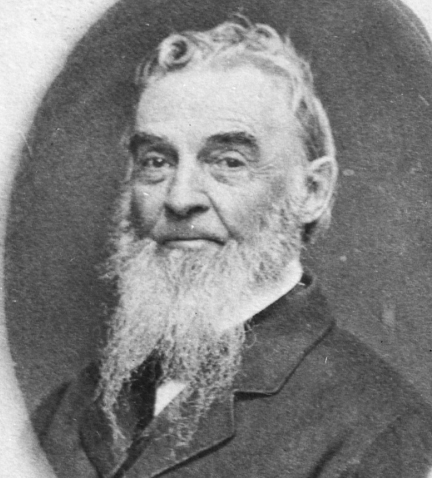Browse "Things"
-
Article
Dominion of Canada (Plain-Language Summary)
The title “Dominion of Canada” was first applied to Canada at Confederation in 1867. It was also used to describe other countries in the Commonwealth. The federal government stopped using the word Dominion by the early 1960s. The last hold-over was the term Dominion Day. It was changed to Canada Day in 1982. Today, the word Dominion is seldom used to describe Canada. (This article is a plain-language summary of the Dominion of Canada. If you are interested in reading about this topic in more depth, please see our full-length entry, Dominion of Canada.)
"https://d2ttikhf7xbzbs.cloudfront.net/media/media/143f8587-f938-4cf1-bdc2-c441d02dc962.jpg" // resources/views/front/categories/view.blade.php
https://d2ttikhf7xbzbs.cloudfront.net/media/media/143f8587-f938-4cf1-bdc2-c441d02dc962.jpg
-
Article
Dominion Organ and Piano Co.
Dominion Organ and Piano Co. Instrument manufacturer. Although the date has not been substantiated, the firm was probably founded in 1870 in Oshawa as (A.M.) Darley and (William) Robinson, later called the Oshawa Organ and Melodeon Manufacturing Co.
"https://development.thecanadianencyclopedia.ca/images/tce_placeholder.jpg?v=e9dca980c9bdb3aa11e832e7ea94f5d9" // resources/views/front/categories/view.blade.php
https://development.thecanadianencyclopedia.ca/images/tce_placeholder.jpg?v=e9dca980c9bdb3aa11e832e7ea94f5d9
-
Article
Dominion Police
The Dominion Police was originally a small protective force organized by the federal government in 1868 to guard the Parliament Buildings in Ottawa following the assassination of Thomas D'Arcy McGee.
"https://development.thecanadianencyclopedia.ca/images/tce_placeholder.jpg?v=e9dca980c9bdb3aa11e832e7ea94f5d9" // resources/views/front/categories/view.blade.php
https://development.thecanadianencyclopedia.ca/images/tce_placeholder.jpg?v=e9dca980c9bdb3aa11e832e7ea94f5d9
-
Article
Dominion Securities Inc
Dominion Securities Inc began business as an investment dealer in 1901. Commencing in the early 1970s expansion of its operations accelerated significantly, through both internal growth and mergers with several other prominent Canadian investment dealers.
"https://development.thecanadianencyclopedia.ca/images/tce_placeholder.jpg?v=e9dca980c9bdb3aa11e832e7ea94f5d9" // resources/views/front/categories/view.blade.php
https://development.thecanadianencyclopedia.ca/images/tce_placeholder.jpg?v=e9dca980c9bdb3aa11e832e7ea94f5d9
-
Article
Dominion Stores Limited/Les Supermarchés Dominion Ltée
Dominion Stores Limited/Les Supermarchés Dominion Ltée, with head offices in Toronto, is a Canadian food distributor and merchandiser incorporated in 1919. The company was so named from 1976 to 1986, when it adopted the name Domgroup Ltd.
"https://development.thecanadianencyclopedia.ca/images/tce_placeholder.jpg?v=e9dca980c9bdb3aa11e832e7ea94f5d9" // resources/views/front/categories/view.blade.php
https://development.thecanadianencyclopedia.ca/images/tce_placeholder.jpg?v=e9dca980c9bdb3aa11e832e7ea94f5d9
-
Article
Domtar Inc
Domtar Inc is a Canadian manufacturer of paper products with headquarters in Montréal. Founded in 1929 as the Dominion Tar and Chemical Company Ltd to acquire the assets of a former business of the same name, the company became Domtar Ltd in 1965 and adopted its present name in 1977.
"https://development.thecanadianencyclopedia.ca/images/tce_placeholder.jpg?v=e9dca980c9bdb3aa11e832e7ea94f5d9" // resources/views/front/categories/view.blade.php
https://development.thecanadianencyclopedia.ca/images/tce_placeholder.jpg?v=e9dca980c9bdb3aa11e832e7ea94f5d9
-
Article
Doric Club
Founded in Montréal in March 1836, the Doric Club was a radical paramilitary group formed in opposition to the Patriote party. Organized by Adam Thom, a Scottish-born francophobe, the club called upon the loyal British population of Lower Canada to unite and defend British interests in the face of the Patriote threat by any means necessary. The group was opposed by a similar paramilitary Patriote group called the Société des Fils de la liberté, which led to a violent confrontation on the streets of Montréal on 6 November 1837. The group disbanded after the start of the Canadian Rebellion, when many of its members joined volunteer militias organized by Sir John Colborne.
"https://d2ttikhf7xbzbs.cloudfront.net/media/media/7a77283a-b2fa-4168-9143-0bbf287ebc65.jpg" // resources/views/front/categories/view.blade.php
https://d2ttikhf7xbzbs.cloudfront.net/media/media/7a77283a-b2fa-4168-9143-0bbf287ebc65.jpg
-
Article
Dorion School Bus–Train Crash
A collision between a school bus and a freight train on 7 October 1966 killed 19 students from Cité-des-Jeunes secondary school near Vaudreuil, Quebec, and their bus driver. The crash is among the worst road disasters in Canadian history.
"https://development.thecanadianencyclopedia.ca/images/tce_placeholder.jpg?v=e9dca980c9bdb3aa11e832e7ea94f5d9" // resources/views/front/categories/view.blade.php
https://development.thecanadianencyclopedia.ca/images/tce_placeholder.jpg?v=e9dca980c9bdb3aa11e832e7ea94f5d9
-
Article
Dorothea Palmer
Dorothea Ferguson (née Palmer), birth control advocate, social worker (born 1908 in England; died 5 November 1992 in Ottawa, ON). Dorothea Palmer was arrested in 1936 for advertising birth control to women in a working-class neighbourhood in Ottawa. She was cleared of charges after a lengthy trial proved her work had been for the public good. Her acquittal was a major victory for the birth control movement in Canada.
"https://d2ttikhf7xbzbs.cloudfront.net/media/DorotheaPalmer/Dorothea Palmer.JPG" // resources/views/front/categories/view.blade.php
https://d2ttikhf7xbzbs.cloudfront.net/media/DorotheaPalmer/Dorothea Palmer.JPG -
Article
Dorset Culture
The Dorset Palaeo-Inuit emerged at some point around 2,800 years ago (ca. 800 to 500 BCE). They persisted until 600 to 700 years ago (ca. 1300 to 1400 CE). Archaeologists generally separate this roughly 2,000-year period into three periods or traditions. These periods are called the Early Dorset (ca. 800 BCE to 1 CE), Middle Dorset (ca. 1 to 500 CE) and Late Dorset (ca. 500 to 1300-1400 CE). The timing and causes of their disappearance are still debated. However, it occurred only a few centuries after the arrival of the early Inuit (Thule). Early Inuit were culturally and genetically distinct from the Dorset (see also Geographical Distribution of the Dorset Culture). While there is significant debate regarding the validity of the Early-Middle-Late periods, there are a number of notable changes that should be considered. In any case, the Dorset period marks a significant shift from the lifeways of their Pre-Dorset ancestors.
"https://d2ttikhf7xbzbs.cloudfront.net/DorsetCulture/Dorset-winter-house-at-Skull-Island-1-Nunatsiavut_updated.jpg" // resources/views/front/categories/view.blade.php
https://d2ttikhf7xbzbs.cloudfront.net/DorsetCulture/Dorset-winter-house-at-Skull-Island-1-Nunatsiavut_updated.jpg
-
Article
'D'où viens-tu bergère?'
'D'où viens-tu bergère?' Christmas carol in the form of a dialogue between a shepherdess who describes the scene of the Nativity (verse) and a throng which plies her with questions (chorus).
"https://d2ttikhf7xbzbs.cloudfront.net/media/media/a8ac9316-d4be-451e-9801-1c4f6a329d71.jpg" // resources/views/front/categories/view.blade.php
https://d2ttikhf7xbzbs.cloudfront.net/media/media/a8ac9316-d4be-451e-9801-1c4f6a329d71.jpg
-
Article
Double Shuffle
After the George-Étienne Cartier-John A. MacDonald ministry in the Province of Canada was forced to resign on 29 July 1858, a Reform ministry was formed under George Brown and A.A. Dorion.
"https://development.thecanadianencyclopedia.ca/images/tce_placeholder.jpg?v=e9dca980c9bdb3aa11e832e7ea94f5d9" // resources/views/front/categories/view.blade.php
https://development.thecanadianencyclopedia.ca/images/tce_placeholder.jpg?v=e9dca980c9bdb3aa11e832e7ea94f5d9
-
Article
Douglas Fir
Douglas fir (Pseudotsuga menziesii) is an evergreen conifer of the pine family (Pinaceae).
"https://d2ttikhf7xbzbs.cloudfront.net/media/media/86ff7dae-e218-4ffc-9952-15acaba15475.jpg" // resources/views/front/categories/view.blade.php
https://d2ttikhf7xbzbs.cloudfront.net/media/media/86ff7dae-e218-4ffc-9952-15acaba15475.jpg
-
Article
Doukhobors
Doukhobors are a sect of Russian dissenters, many of whom now live in western Canada. They are known for a radical pacifism which brought them notoriety during the 20th century. Today, their descendants in Canada number approximately 30,000, with one third still active in their culture.
"https://d2ttikhf7xbzbs.cloudfront.net/DCI-images/1908-Doukhobours-final-rescale.jpg" // resources/views/front/categories/view.blade.php
https://d2ttikhf7xbzbs.cloudfront.net/DCI-images/1908-Doukhobours-final-rescale.jpg
-
Article
Music of the Doukhobors
Fundamentalist Christian sect of Russian origin. The tenets of the Doukhobors' simple faith held them apart from what they considered the idolatry, opulence, and corruption of the Russian Orthodox Church.
"https://development.thecanadianencyclopedia.ca/images/tce_placeholder.jpg?v=e9dca980c9bdb3aa11e832e7ea94f5d9" // resources/views/front/categories/view.blade.php
https://development.thecanadianencyclopedia.ca/images/tce_placeholder.jpg?v=e9dca980c9bdb3aa11e832e7ea94f5d9

